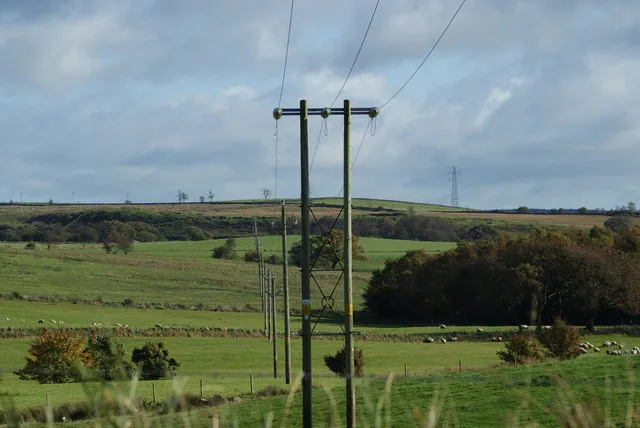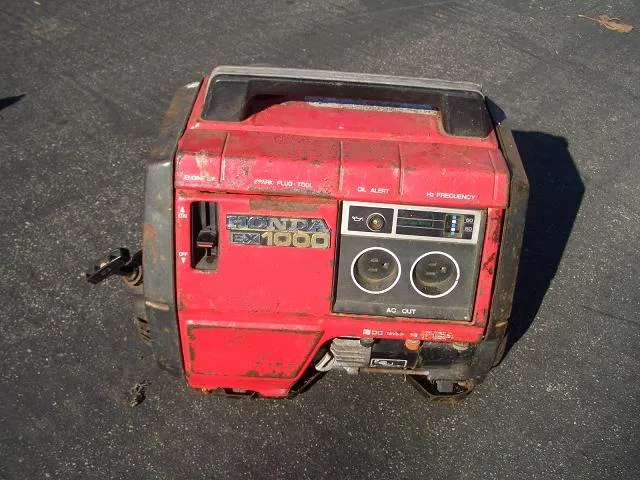Over a decade of black out
Few days to Christmas last year, I travelled to Igbokoda, in Ondo state, Nigeria, where I grew up and my family of orientation currently reside. My experience over the few days that I spent with my family was not palatable at all. I was reminded of what life without electricity for over a decade meant to the habitants of a community in practical terms.
For more than a decade now, the habitants of Ondo South senatorial district comprising of more than 1000 communities, with over 1 million people from three different ethnic groups have been without power supply.
They have been cut off the national grid, according to the Benin Electricity distribution company (BEDC), due to a damaged breaker at the Ondo 132/33KV Station and limited power supply from the Transmission Company of Nigeria (TCN).
Funny enough, the affected areas being oil producing communities, is accountable for about 70 % of the state's income. Yet, for more than a decade, they have been thrown into utter darkness while one government after another keep their hope alive with unending promises.
Economic activities in the affected areas have suffered a huge setback, with the small and medium scale businesses bearing the greater part of the brunt.
This has led to the dearth of infrastructural development, moribund businesses and unemployment with attendant increase in criminal activities.
To survive the abnormal situation, every household who can afford to get a generator had done so. The noise pollution from generators in our neighborhood, especially at night, was sickening! I could hardly wait to fulfill my mission before leaving town.
I thought I had escaped to a safe haven when I finally arrived at my residence in Osun State where at least the electric power supply was fairly good but my experience two days ago was an eye opener into part of the challenges responsible for unstable power supply across Nigeria.
Privatization of the power sector
In the mid-1980, the World bank demanded that countries in sub-Saharan Africa made structural adjustment to their economic policies in exchange for funding.
This led to the adoption of concepts like deregulation, commercialization and privatization in the economic policies of many Africa countries. The aim was to reduce the involvement of public sector in owning and managing assets in order to allow market forces allocate resources efficiently.
Thus, the power sector and many other enterprises that were previously owned and managed by the state were privatized. The Nigerian National Electricity Power Authority (NEPA) was renamed Power Holding Company of Nigeria (PHCN) upon privatization.
Eleven distribution companies and seven generating companies were bought by different companies and managed by a single Transmission Company.
For more than a decade after the privatization of the power sector, Nigerians are still suffering from epileptic power supply with many industries leaving the shore of Nigeria for neighboring countries on this account.
Research has shown that though Nigeria has an installed power capacity of 12,522 Megawatts (MW), she can only generate about 4000 MW which is grossly inadequate for her population of over 200 million people.
Some of the factors responsible for the ineptitude of Nigeria's power sector despite privatization includes:
The unstable economic condition in which the new owners and managers have to operate. The power of Nigeria naira to the US dollar seems to be on an unending downward trend, which makes the purchase of imported input for the revitalization of the old power infrastructure, to bring it up to date, very difficult for investors.
Also, investors who bought these power firms on loan from banks concentrate on the repayment of their loans rather than reinvestment to update the sectors.
Incessant vandalization of the gas pipelines that supply generating plant by criminal elements is another challenge.
In addition, decay in the infrastructure limits the amount of generated power that can be transmitted by distribution companies and therefore they limit the amount of their purchase and the amount of electricity that consumers can get.
Lastly, there is the problem of inadequate metering, estimated billing and power theft so that payment is not in sync with power consumption.
My experience two days ago
Officers of the PHCN came into our compound two days ago, and after examining the meters in each flat thoroughly, they knocked at our doors.
I and another person from a neighboring flat in the compound came out to attend to them but two of our neighbors wouldn't open to them even when it was clear to the men of PHCN that they were indoor.
The officers intimated me that I was the only person using my meter as my neighbors have bypassed the usage of their meters and were stealing power from them and therefore they were going to cut off our power supply since there was no way they could disconnect them and spare me.
I was dumbfounded. I pleaded with them to no avail that it was not going to be fair on my part if they disconnected me because of their theft. They advised me to speak with my landlord to connect my apartment directly to the power source, so that I don't share power supply with my neighbors.
When I informed my landlord about it, the man informed me that I am free to do so if only I will shoulder the financial responsibility. I found myself between the devil and the deep blue sea.
My neighbor cooked up lies about the prepaid meter not functioning properly but the PHCN officers were not moved.
After a day of black out, my neighbors informed me that they had gone to the PHCN office to settle. They unfolded their new strategy. They will make use of their prepaid meters during the day but bypass it at night, at a time when PHCN officers won't be out working! This is outright stealing!
In Conclusion
Nigerians are quick to accuse PHCN officers of extortion from exorbitant estimated billing which is no doubt the truth but some unscrupulous elements among the citizens are also doing their best to frustrate investors in the power sector so that it becomes pertinent to ask the question: What is the way out of Nigeria's electricity mess?
References
Why Ondo South remains in blackout for 10 years – BEDC
Nigeria’s post-privatization energy sector is a mess: here are some solutions

